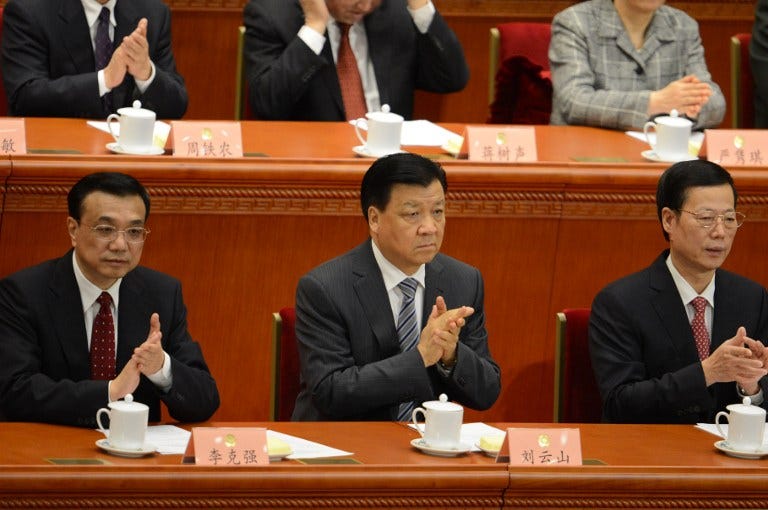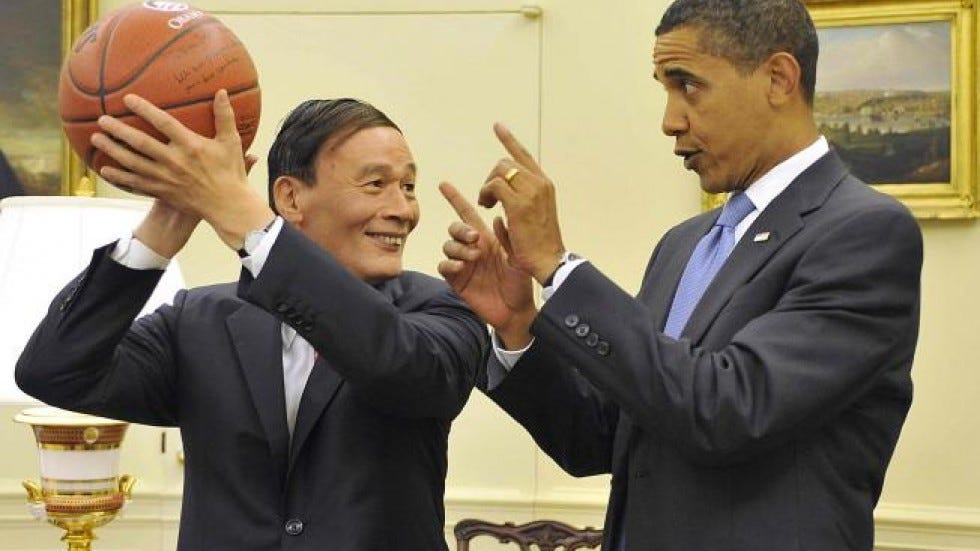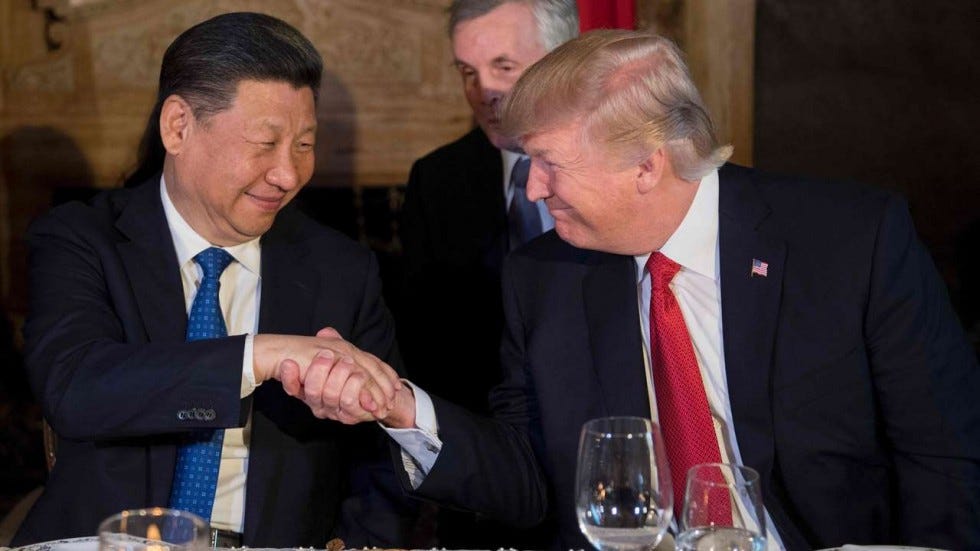As leaders meet in Beijing for the 19th Party Congress, the Fairbank Center presents a visual guide to understanding China’s elite politics. By Yuanzhuo Wang, Research Associate at Harvard Business School, and James Gethyn Evans, Communications Officer at the Fairbank Center for Chinese Studies.
China’s Leadership before the 19th Party Congress:

In the People’s Republic of China (PRC), “leaders of party and state” (党和国家领导人) refers to leaders who hold national or vice-national administrative rank in the Chinese Communist Party (CCP) and the Chinese state. These leaders are usually reshuffled every five years, first with leaders of the Party during the CCP Party Congress, and then a few months later with the appointment (or technically “election”) of some of those leaders to key state institutions during the first full session of a new National People’s Congress and Chinese People’s Political Consultative Conference (CPPCC).
The Politburo Standing Committee (PSC) of the Central Committee of the CCP (CCP-CC) — represented in the orange circle of the infographic — holds ultimate power in the PRC. It is elected from the full Politburo —both the orange and yellow circles — by the CCP-CC, which is elected by the CCP Party Congress, nominally the highest authority in the CCP.

The PSC is headed by Xi Jinping, who is the General Secretary of the CCP-CC and head of the Party. Since 1992, except during a period of leadership transition, the General Secretary of the CCP-CC has also served concurrently as the President of the PRC, and the Chairman of the Central Military Commission (CMC), making him the head of the party, state, and military. Currently, Xi Jinping is recognized as the “core” of the current party leadership, a title that was first used by Deng Xiaoping to describe Jiang Zemin, but was never bestowed on Xi’s predecessor, Hu Jintao.
In addition to serving as the highest decision making body of the CCP and PRC as a collective, each member of the PSC also oversees specific areas of government through the institutions he heads or the Politburo members reporting to them. Below is a brief overview of the division of the CCP-CC Politburo, the key party and state institutions, and main individuals involved:
Party Affairs
PSC Member in Charge: (Xi Jinping 习近平), Liu Yunshan 刘云山
Lead Organ: CCP Central Committee Secretariat (中共中央书记处)

The management of party affairs is coordinated through the CCP-CC Secretariat, headed by the first ranked Secretary Liu Yunshan who reports to the General Secretary, Xi Jinping. Several “leading groups” also coordinate different components of Party Affairs. Key components of party affairs include:
Organization: controls party and government personnel appointments above vice-minister/vice-governor rank
Propaganda: controls media and party ideology
CCP-CC General Office: administrative and internal communications center
Central Party School: trains party officials
Directors of the CCP-CC General Office, Organization Department, Propaganda Department and the first ranked Vice Secretary of the CCP Central Commission for Discipline Inspection usually serve as secretaries of the Central Secretariat. The first ranked Secretary of the CCP-CC Secretariat usually heads the Central Party School. Other members are determined by the General Secretary and the PSC.
Legislature
PSC Member in Charge: (Xi Jinping 习近平), Zhang Dejiang 张德江
Lead Organ: Standing Committee of the National People’s Congress (NPC-SC) (全国人大常委会)

The NPC-SC amends/interprets the PRC’s constitution and drafts or passes legislation. Through its powers to interpret the Hong Kong and Macau Basic Laws, the NPC-SC also plays a leading role in Hong Kong and Macau Affairs, the specifics of which are handled through the CCP-CC United Front Works Department and the Hong Kong and Macau Office of the State Council.
The numerous vice chairs of the NPC-SC head some of the eight CCP approved “democratic parties” or important “mass organizations”, represent key ethnic minority groups, or are senior officials in semi-retirement helping to draft national legislations. Some of these vice chairs are non-CCP members but all follow CCP leadership.
Mass Organizations
PSC Member in Charge: (Xi Jinping 习近平), Liu Yunshan 刘云山
Lead Organ: Politburo member (s) overseeing mass organizations

The CCP usually appoints a Politburo member to serve as the first-ranked Vice Chairman of the NPC overseeing “mass organizations” that manage relationships with various socio-economic/professional groups. These groups include, for example, the All-China Federation of Trade Unions, the All-China Women’s Federation, and the All-China Youth Federation.
Heads of the mass organizations are usually minister-ranked (and therefore not shown on the infographic), unless they concurrently serve as Vice Chair of the NPC-SC, such as Shen Yueyue, the Chairwoman of the All-China Women’s Federation.
Economy and Government Administration
PSC Member in Charge: (Xi Jinping 习近平), Li Keqiang 李克强, Zhang Gaoli 张高丽
Lead Organ: State Council (国务院), CCP-CC Leading Group on Finance and Economic Affairs

The executive arm of the Chinese government which proposes/implements policy and regulations that impact government, economy, and society. Each State Council Vice Premier or State Councilor oversees several ministries that regulate key sectors of the economy.
CCP policy coordinating groups like the Office of the CCP-CC Leading Group on Finance and Economic Affairs also coordinate economic policy at the highest level. The Leading Group on Finance and Economic Affairs is headed by Xi Jinping with Xi protégé Liu He as office director in charge of overseeing day-to-day affairs. The Premier Li Keqiang serves as Deputy Head of the group.
United Front
PSC Member in Charge: (Xi Jinping 习近平), Yu Zhengsheng 俞正声
Lead Organ: National Committee of the Chinese People’s Political Consultative Conference (CPPCC) (全国政协)

In charge of the CCP’s relationship with non-CCP organizations and individuals including important ethnic/religious figures from China’s autonomous regions, CCP-friendly political and business leaders of Taiwan, Hong Kong/Macau, and overseas, and other social influencers in China, such as actors, singers, and athletes.
The CCP Central United Front Works Department is the party organ managing united front works while the CPPCC hosts the “targets” of united front works.
The numerous vice chairs of the CPPCC head some of the eight CCP approved “democratic parties” or important “mass organizations”, represent key ethnic minority groups, or are senior officials in semi-retirement advising policy; some of these vice chairmen/chairwomen are non-CCP members but all follow CCP leadership.
Some senior government officials are given Vice Chairman-ship of the CPPCC so they become vice-national ranked cadres and are permitted an increased mandatory retirement age, such as People’s Bank of China Governor Zhou Xiaochuan.
Anti-Corruption
PSC Member in Charge: (Xi Jinping 习近平), Wang Qishan 王岐山
Lead Organ: CCP Central Commission for Discipline Inspection (CCDI) (中共中央纪律检查委员会)

In charge of the enforcement of “party discipline” with extra-judicial powers to detain and investigate party members for any number of suspected “disciplinary violations”, including corruption. Under Wang Qishan, the CCDI has sent “inspection teams” into other government agencies and localities to handle corruption cases as part of Xi Jinping’s anti-corruption campaign. The current state counterpart is the Ministry of Supervision under the State Council, but the creation of a higher ranked national supervision committee is in the works.
Judiciary and Domestic Security
PSC Member in Charge: Xi Jinping 习近平
Lead Organ: CCP-CC Central Political and Legal Affairs Committee (PLAC) (中共中央政法委员会)

“Political legal work” covers:
Law enforcement: through the Ministry of Public Security under the State Council, which controls the police
Court system: through the Supreme People’s Court (SPC)
State prosecutors: through the Supreme People’s Procuratorate (SPP)
State security: through the Ministry of State Security under the State Council
The presidents of the SPC and SPP are “elected” by the NPC and legally report to the NPC or the NPC-SC. In practice, they are members of the CCP-CC PLAC and are supervised by the Party. From 2002–2012, the secretary (head) of the committee served as a member of the PSC, but the position was demoted to Politburo status to give more authority to the General Secretary/President. Former PSC member and CCP-CC PLAC Secretary Zhou Yongkang is currently serving a life sentence in prison.
Other CCP policy-coordinating organs, such as the newly created CCP Central National Security Commission (headed by Xi Jinping), also influence national security policy.
Policy Advisory
PSC Member in Charge: Xi Jinping 习近平
Lead Organ: CCP Central Policy Research Office (中共中央政策研究室)

Drafts key party and national policy documents including important speeches of leaders.
The current director, Wang Huning 王沪宁, rose through the party ranks as the director of this office from ministry-rank in 2002 to Politburo-rank (vice-national rank) in 2012 without any changed in status of the office itself. Wang also serves as the Secretary General and Office Director of the newly created CCP Central Leading Group on Comprehensive Deepening Reform, headed by Xi Jinping, which coordinates the party/government’s reform agenda
Foreign Policy
PSC Member in Charge: Xi Jinping 习近平
Lead Organ: Office of the CCP-CC Leading Group on Foreign Affairs (headed by the State Councilor in charge of foreign affairs) (中共中央外事领导小组办公室)

As head of the CCP-CC Leading Group on Foreign Affairs, Xi Jinping has direct oversight over foreign policy. China’s highest ranking professional diplomat since 2003, however, has been a State Councilor of the State Council, who acts as Office Director of the CCP-CC Leading Group on Foreign Affairs.
Other CCP policy coordinating organs, such as the newly created CCP Central National Security Commission, may also influence foreign policy.
Military
PSC Member in Charge: Xi Jinping 习近平
Lead Organ: Central Military Commission of the CCP-CC and of the PRC (CMC)(中共中央军事委员会/中华人民共和国军事委员会)

As the Chairman of both the Central Military Commission of the CCP and the PRC, Xi Jinping has direct oversight over military affairs
Under Xi, the military’s organization and command structure was streamlined to give the CMC more direct control over the military, and to improve joint-operation capabilities of the People’s Liberation Army (PLA).
Since 1997, the two highest ranking officers of the PLA have been Politburo members. The last professional military member of the PSC retired in 1997.
The PLA is considered the armed branch of the CCP that also serves as the armed forces of the PRC.
Key Localities
Beijing (Directly Administered Municipality), Shanghai (Directly Administered Municipality), Tianjin (Directly Administered Municipality), Chongqing (Directly Administered Municipality), Guangdong (Province), Xinjiang (Autonomous Region)

The Communist Party Secretary (PS) is the highest ranking official of a locality, while the local head of government (for example, the governor or mayor) is the PS’s deputy. The PS of these key localities add local perspectives to central policy-making and help with policy implementation in their geographic areas.
The head of all province-level localities are minister ranked unless they gain Politburo membership, which grants them vice-national rank.
Because of personnel reshuffles under Xi (and his anti-corruption campaign), several PS of these key localities are currently held by non-Politburo members, their Politburo-member predecessors either having been moved to other positions or (in the case of Chongqing PS Sun Zhengcai 孙政才) being placed under investigation.
The PS of provincial-level localities, along with some key governors and mayors (for example, the mayors of Beijing and Shanghai) serve as the largest pool of candidates for promotion into the Politburo. Promotions from province-level PS/governor/mayor positions accounted for 50%, 60%, and 56% of new promotions into the 16th (2002), 17th (2007), and 18th (2012) Politburos respectively.
Download the full-sized infographic from the Fairbank Center’s website.
This infographic was developed by Yuan Wang, Research Associate at Harvard Business School, and James Evans, Publications Coordinator at the Fairbank Center for Chinese Studies.

